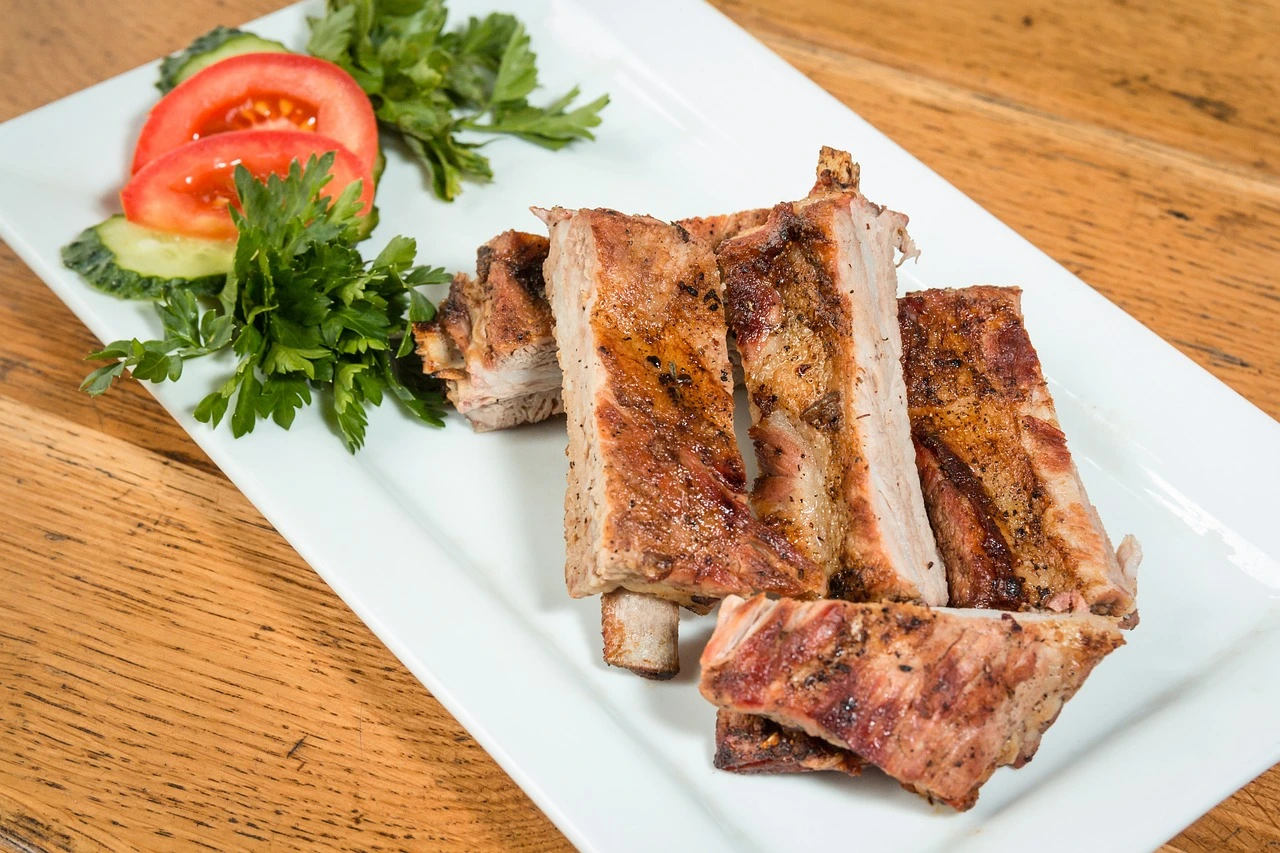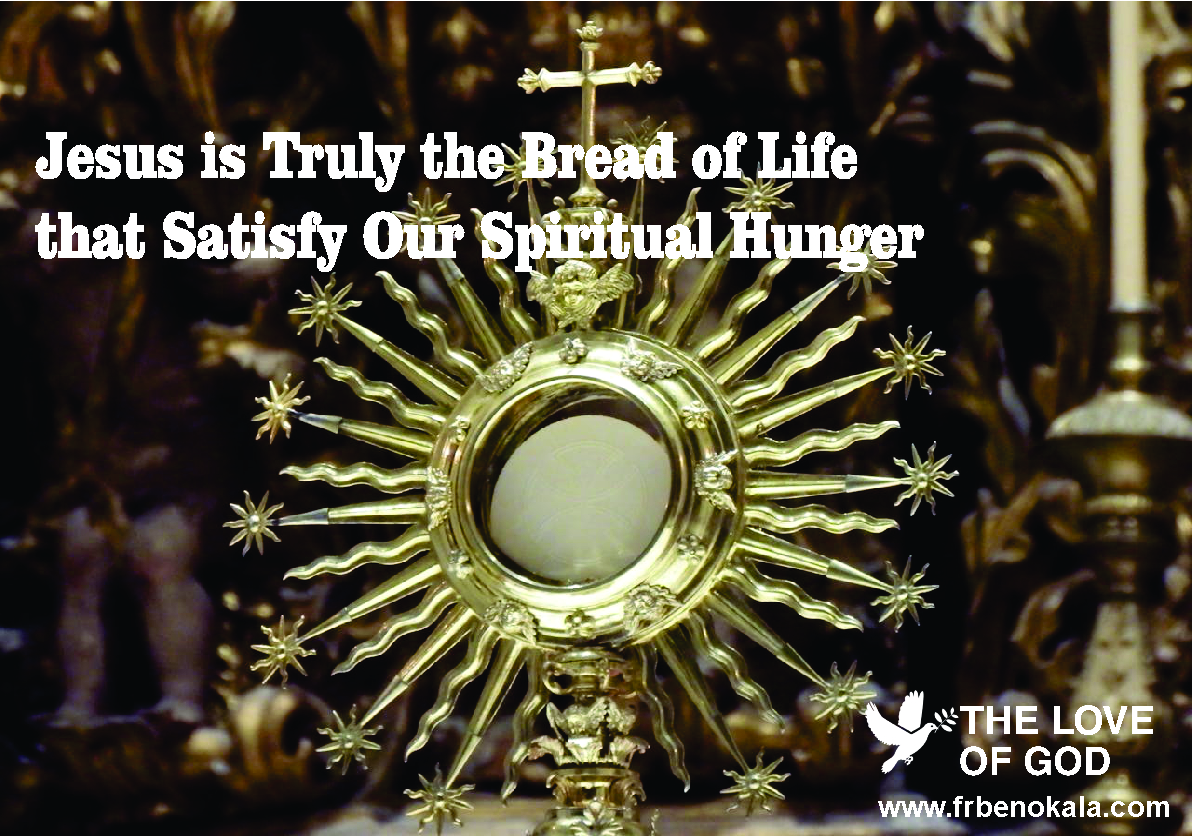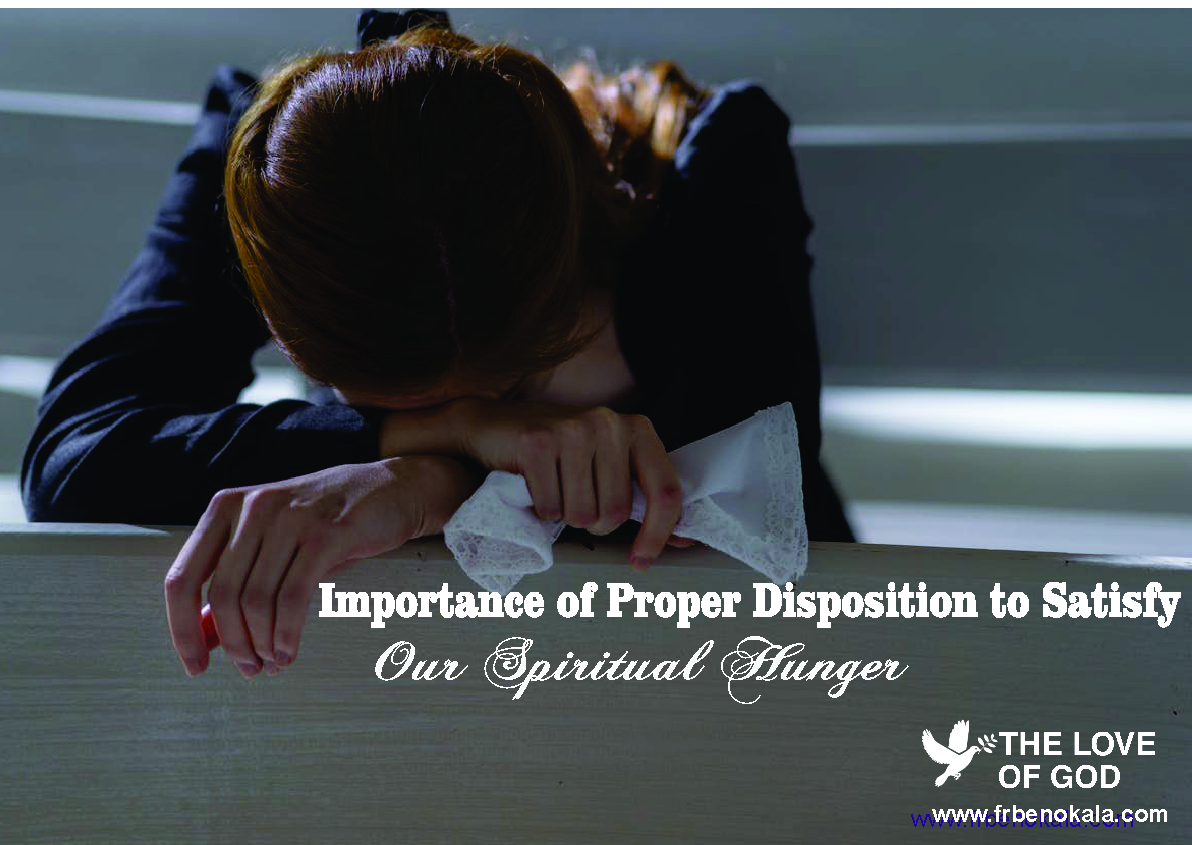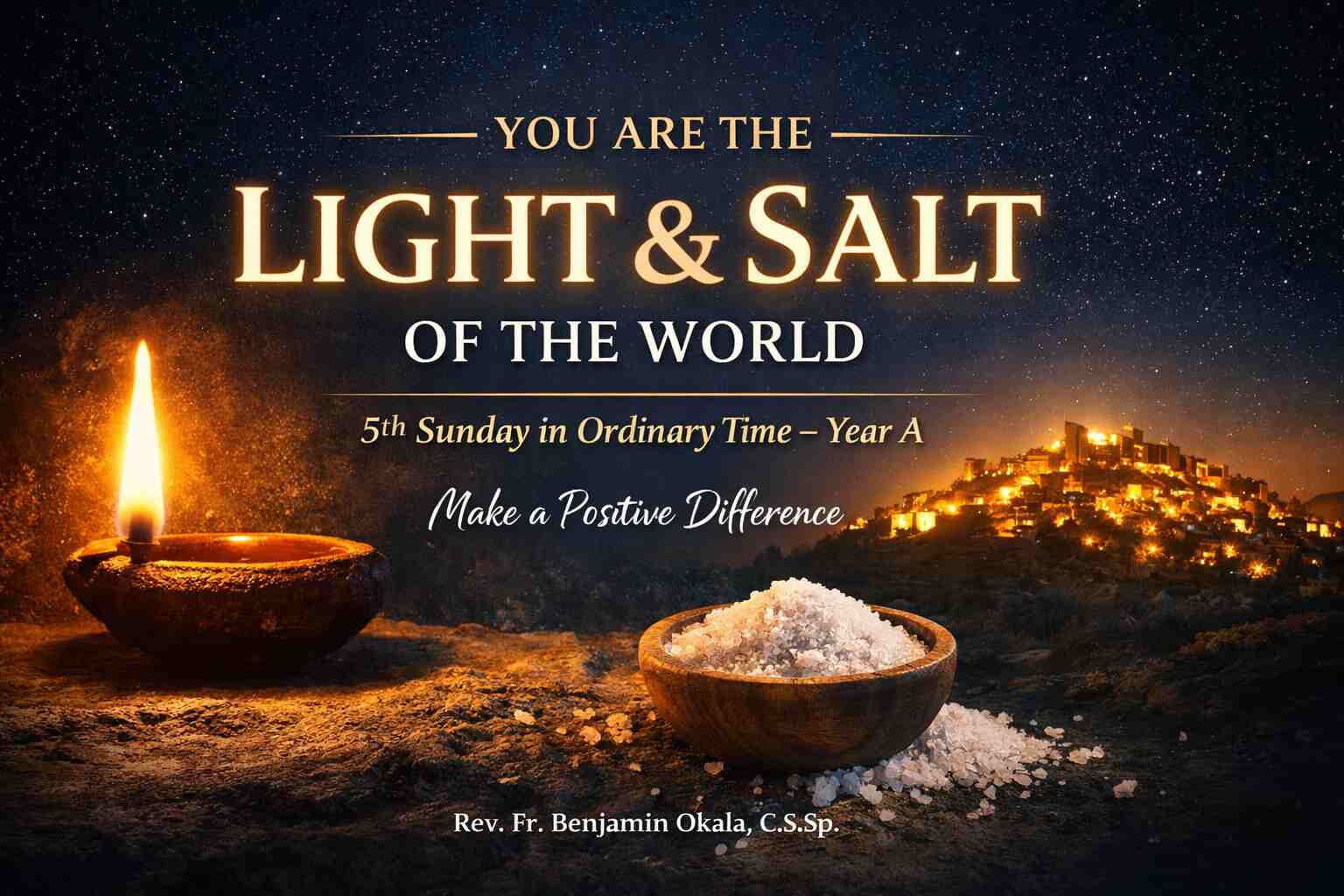Homily of 19th Sunday in Ordinary Time, Year B
First Reading: 1 Kings 19:4-8; Second Reading: Ephesians 4:30-5:2; Gospel: John 6:41-51
Human existence is usually marked by a relentless pursuit of fulfillment. While our physical bodies demand sustenance, our souls yearn for something deeper—a craving for meaning and connection that transcends material comforts. Yet, amid life’s uncertainties, this spiritual hunger often goes unfulfilled. For many Catholics, this longing intensifies in moments of despair and vulnerability as doubts about the efficacy of the Holy Eucharist and even the existence of God begin to surface.
Regrettably, some Catholics today navigate through their existential struggles with a sense of overfamiliarity, triviality, or even a lack of faith in the Holy Eucharist. At times, they may begin to question God’s existence, especially when they see their enemies progressing while they are suffering. Join me as we reflect on the transformative power of God, which sustains and satiates our spiritual hunger through life’s challenges.
Yearning for Food that Quenches Our Spiritual Hunger

Food is one of the basic needs that enhances the energy level in our body system, enabling us to discharge our duties effectively. Without it, delirium would set in, or even death if we are starved for a very long time. This is one of the reasons why many people struggle to acquire educational qualifications or engage in various enterprises to earn their daily bread. Despite years of consuming physical food, we discover that it only temporarily satisfies our hunger. So, what then can truly assuage us ad infinitum and satisfy our spiritual hunger?

In the first reading, Elijah longed to meet God, the only reason for his existence. After his encounter with the Baal prophets, he fled because Queen Jezebel was after his life. On the way, he became tired, hungry, and exhausted. Thus, he entreated the Lord, who sent His angels to feed him miraculously with bread and water. Subsequently, he was resuscitated and received enormous strength, which sustained him in his journey for forty days. This implies that God can never allow us to starve. He will surely satisfy our spiritual hunger once we are in communion with Him.
Jesus is Truly the Bread of Life that Satisfy Our Spiritual Hunger

In the gospel reading, the continuation of last Sunday’s, Jesus says, “I am the bread which came down from heaven. If anyone eats of this bread, he will never die but will live forever (John 6:51). Unfortunately, due to a lack of faith, overfamiliarity, and strict monotheistic belief, the Jews could not accept this Eucharistic doctrine and thus murmured. The reason was that they had a human perception of Jesus Christ, whom they usually see every day. For them, to admit His divinity would imply two gods. However, in response, Jesus says, “No one can come to me unless drawn by the Father who sent me, and I will raise that person up on the last day” (John 6:44). We can come to Jesus Christ through the help of the Holy Spirit, only if we can open our hearts to seek God in sincerity.
Sadly, among many Catholics, there is a privation, a sense of absence, and even estrangement from true communion with God. Perhaps, due to ignorance, many people do not believe in the efficacy of the Holy Eucharist. Yet the Eucharist remains a powerful food that satiates humanity’s spiritual hunger. Unfortunately, they tend to approach the Holy Eucharist with triviality, probably due to overfamiliarity, lack of faith, or not being well-catechized. This is a paralyzing reality among some Catholic faithful; the major reason why some are spiritually, emotionally, and psychologically sick. Hence, whenever we starve our spiritual being, we may be subjecting ourselves to a spiritual tsunami or fatality.
The Importance of Proper Disposition to Satisfy Our Spiritual Hunger

For effective satisfaction of our spiritual hunger, there is a need for adequate preparation (confession). That is, having proper disposition before and during Eucharistic celebrations. When this is done, it will pave the way for holistic healing and nourishment. This is because the nourishment and sanctification we receive from the Holy Eucharist daily go a long way in helping us navigate through the vicissitudes of life unscathed.
Moreover, the bread and water Elijah took on the mountain are like the physical food we eat. They momentarily satisfy our bodies and help to boost our energy level to do work. However, when we participate actively in the Holy Mass and receive the Eucharist worthily, our oneness in need of God will have profound and unifying spiritual effects on our souls. Thus, the burning fire or our spiritual hunger will be extinguished.
A Call to Live in Harmony with the Holy Spirit

To live by God’s principles as Christians, there is a need to work harmoniously with the Holy Spirit. That is why in the second reading, St. Paul urges us not to live lives filled with bitterness, hatred, murmuring, anger, etc., which only make the Holy Spirit sad. This attitude further exacerbates our spiritual hunger. Rather, we should endeavour to live in peace, harmony, and love with one another no matter the challenge we experience.
When we experience the power of the Holy Eucharist, we are transformed into the image of Christ. Hence, our minds would be renewed by a spiritual revolution. Therefore, we should live as those who have encountered God in a very special way through the Holy Eucharist. In so doing, we do not satisfy our spiritual hunger only but become the mirror that shapes other people’s lives.
Conclusion
The Holy Eucharist is the true body and blood of Jesus Christ—the heavenly food that satisfies our spiritual hunger. As such, we need to approach Him with adequate preparation and reverence. Just as the Jews failed to recognize Jesus’ divinity and could not accept His teachings, we too may miss the profound grace offered in the Eucharist. By approaching the altar with a contrite heart and active participation, we open ourselves to the transformative power of Christ’s presence.
Furthermore, the Holy Mass is not merely a ritual but a life-changing encounter that nourishes our souls, strengthens our faith, and guides us on our journey to eternal life. So, we should avoid the temptation of approaching this holy sacrament with overfamiliarity or triviality, as this can hinder our spiritual growth. If we remain faithful, then Christ will surely transform our sufferings into blessings for the glory of God.
Prayer:
I pray that through the power of the Holy Eucharist, you may grow in faith and love of God. Also, may God satisfy your spiritual hunger and send you His angels whenever you are in need through Jesus Christ our Lord, Amen.
Peace of Christ be with you…
Rev. Fr. Ben Okala, C.S.Sp.



